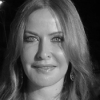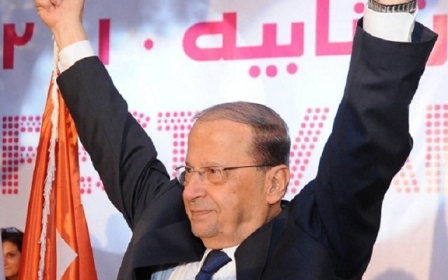Lebanon's deadlock is over, but don't hold your breath for reforms

The political deadlock at the head of the Lebanese state finally ended on 31 October with the election of General Michel Aoun as Lebanon’s president, followed by the swift nomination of Prime Minister Saad Hariri.
It is unlikely the candidates will change the dysfunctions of the current power sharing system or address Lebanese citizens’ mounting concerns
The elections highlight several fresh trends prevailing over the Lebanese political scene: namely the willingness of political parties to compromise and to produce surprising new alignments.
While appointments will bring much needed stability to the country, it is unlikely the candidates will change the dysfunctions of the current power-sharing system or address Lebanese citizens’ mounting concerns.
Until 31 October, the Lebanese parliament had convened 45 times over a two-and-a-half-year period, failing to find the needed quorum for the presidential elections. Hezbollah and its allies had refused to attend without guaranteeing the election of their candidate Michel Aoun.
However, according to sources close to the former prime minister, Hariri’s significant pivot was motivated by several calculations: a shift in the balance of military power in Syria in favour of the regime of President Bashar Assad, a staunch ally of Hezbollah and Aoun. In addition, Hariri has been weakened locally in the recent period, with his candidates performing poorly in municipal elections, and his company Oger believed to be on the verge of bankruptcy.
An era of incoherent alliances
The natural shift that led to Aoun’s election and Hariri’s appointment is unprecedented in Lebanon. Political factions rarely come to such conclusions and are generally forced to compromise by foreign powers.
The million dollar question is how this fresh majority will function given Hariri’s rivalry with both Aoun and Hezbollah
In the pre-2005 period and up until the end of the Syrian occupation, it was Assad who was the ultimate decision maker. In 2008, the Doha agreement framed by foreign powers brokered the formation of a consensus government followed by the election of President Michel Sleiman.
This time, and unlike preceding deadlines, Aoun’s election and Hariri's appointment were the result of intense negotiations and a locally brokered deal between arch enemies.
This has ushered in new and incoherent alliances in a country divided between two large coalitions: a pro-Western and Arab March 14 movement led by Hariri’s Future party and March 8 led by Hezbollah and including Aoun’s Free Patriotic Movement, backed by Syria and Iran.
These coalitions hold no more as Aoun’s haphazard majority is comprised of the Future movement as well as Hezbollah. The million-dollar question is how this fresh majority will function given Hariri’s rivalry with both Aoun and Hezbollah.
Stable, but static
Despite these uncertain dynamics, the election of President Aoun and Hariri’s appointment will bring much stability to the system. Lebanon has been facing unprecedented paralysis at the level of political institutions which has been reflected in poor economic performance, soaring public debt and questions on the country’s financial stability.
Neither will Hezbollah lose its position as Lebanon’s most powerful political player, nor will there be an end to the disconnect between the political class and Lebanese people
The presidency and the formation of a new government will allow for much needed appointments in key positions such as the Central Bank governor among others and should restore consumer confidence levels.
Yet, it is doubtful that it will change the power-sharing agreement prevailing in Lebanon, which is based on the division of the country’s resources between prominent sectarian leaders. In this framework, neither will Hezbollah - the only faction to retain military might after the civil war - lose its position as Lebanon’s most powerful political player, nor will there be an end to the disconnect between the political class and Lebanese people.
The resolution of Lebanon’s painful political battle will stabilise the country in the short-run, and preserve its security in a region engulfed by sectarian fires. But it will fail in the long term to bring much-needed reforms which would insure the economic and political rebuilding necessary to Lebanon's survival.
- Mona Alami is a researcher and journalist covering Levant politics. She is a non-resident fellow at the Atlantic Council. Her primary focus is radical organisations. She holds a BA and an MBA in management.
The views expressed in this article belong to the author and do not necessarily reflect the editorial policy of Middle East Eye.
Photo: Lebanese President Michel Aoun (C) meets with his newly appointed Prime Minister Saad Hariri (R) and Parliament Speaker Nabih Berri at the presidential palace in Baabda, east of Beirut on 3 November 2016 (AFP)
Stay informed with MEE's newsletters
Sign up to get the latest alerts, insights and analysis, starting with Turkey Unpacked
Middle East Eye delivers independent and unrivalled coverage and analysis of the Middle East, North Africa and beyond. To learn more about republishing this content and the associated fees, please fill out this form. More about MEE can be found here.







